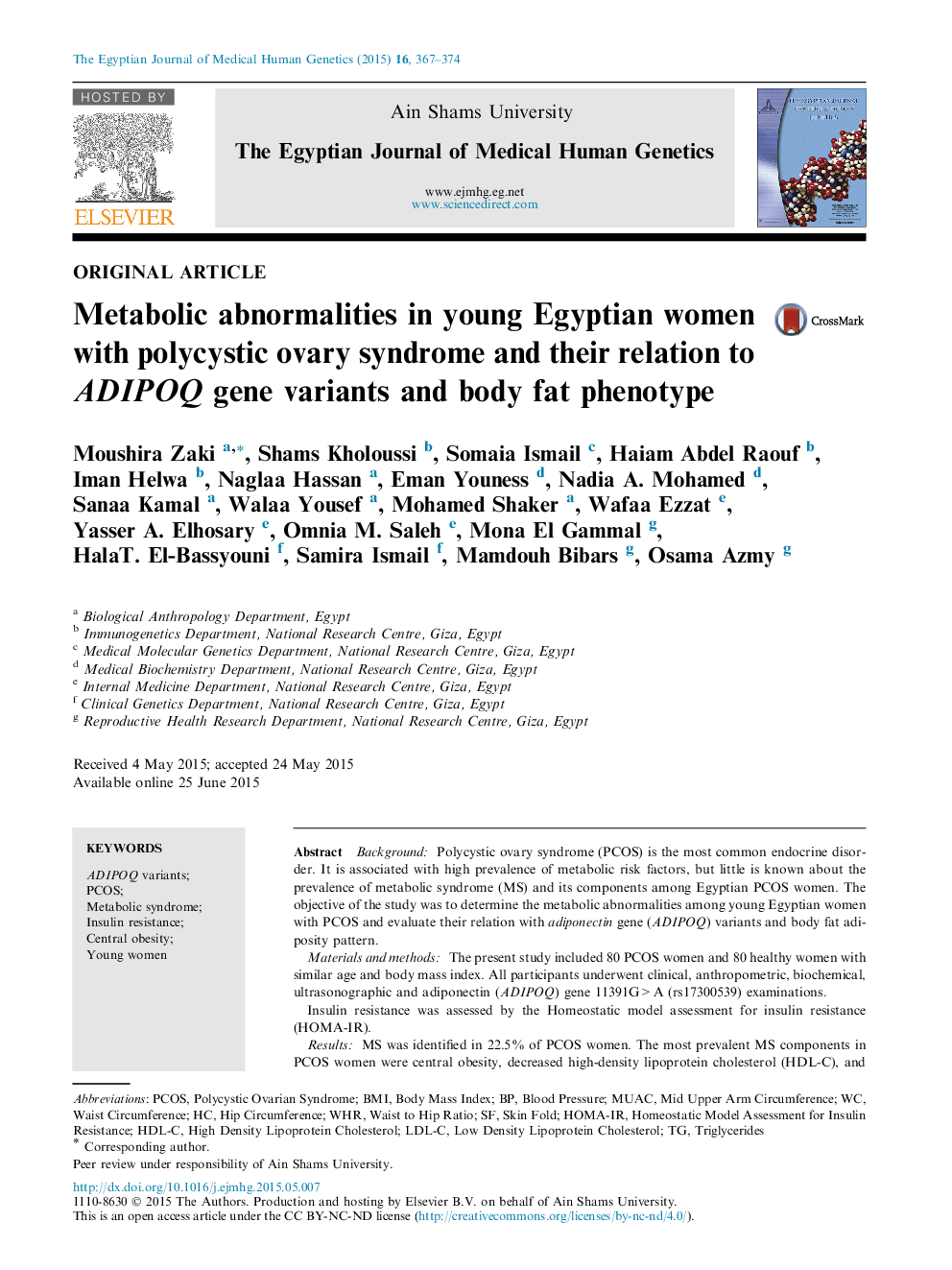| کد مقاله | کد نشریه | سال انتشار | مقاله انگلیسی | نسخه تمام متن |
|---|---|---|---|---|
| 2178049 | 1549622 | 2015 | 8 صفحه PDF | دانلود رایگان |

BackgroundPolycystic ovary syndrome (PCOS) is the most common endocrine disorder. It is associated with high prevalence of metabolic risk factors, but little is known about the prevalence of metabolic syndrome (MS) and its components among Egyptian PCOS women. The objective of the study was to determine the metabolic abnormalities among young Egyptian women with PCOS and evaluate their relation with adiponectin gene (ADIPOQ) variants and body fat adiposity pattern.Materials and methodsThe present study included 80 PCOS women and 80 healthy women with similar age and body mass index. All participants underwent clinical, anthropometric, biochemical, ultrasonographic and adiponectin (ADIPOQ) gene 11391G>A (rs17300539) examinations.Insulin resistance was assessed by the Homeostatic model assessment for insulin resistance (HOMA-IR).ResultsMS was identified in 22.5% of PCOS women. The most prevalent MS components in PCOS women were central obesity, decreased high-density lipoprotein cholesterol (HDL-C), and increased triglycerides (TG), blood pressure (BP) and fasting glucose levels. The study found association between ADIPOQ promoter variants −11391G>A and MS in PCOS women. Moreover, multivariate logistic regression analysis showed association between abdominal fat accumulation and IR in PCOS.ConclusionThe prevalence of MS was significantly higher in PCOS women than controls, and central obesity and hypertension are risk factors for insulin resistance. Moreover, obesity plays a key role in the development of PCOS and ADIPOQ −11391G>A gene variants showed association with MS.
Journal: Egyptian Journal of Medical Human Genetics - Volume 16, Issue 4, October 2015, Pages 367–374